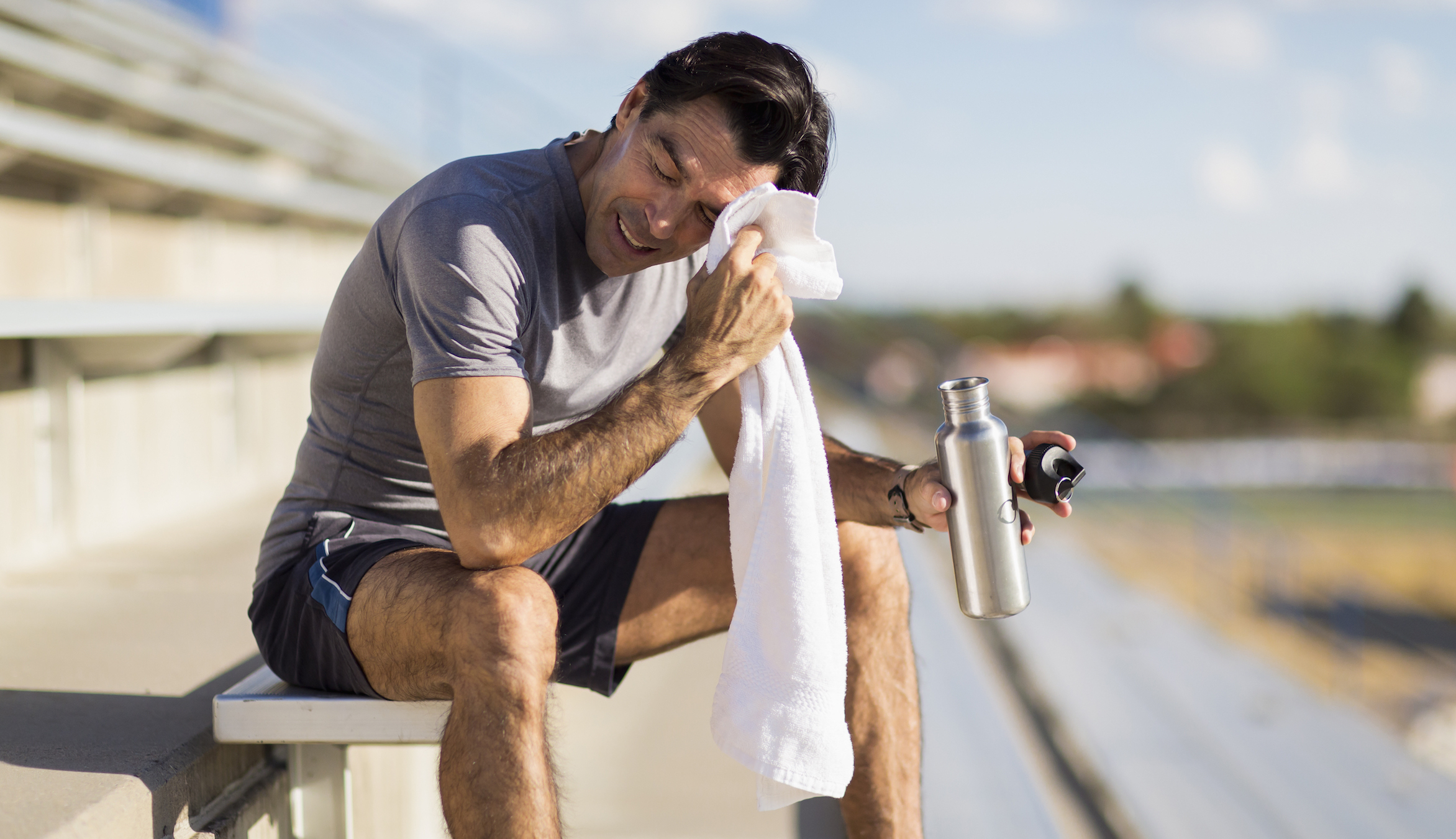Why is humidity so uncomfortable?
Water vapor essentially suffocates our skin.

Get the world’s most fascinating discoveries delivered straight to your inbox.
You are now subscribed
Your newsletter sign-up was successful
Want to add more newsletters?

Delivered Daily
Daily Newsletter
Sign up for the latest discoveries, groundbreaking research and fascinating breakthroughs that impact you and the wider world direct to your inbox.

Once a week
Life's Little Mysteries
Feed your curiosity with an exclusive mystery every week, solved with science and delivered direct to your inbox before it's seen anywhere else.

Once a week
How It Works
Sign up to our free science & technology newsletter for your weekly fix of fascinating articles, quick quizzes, amazing images, and more

Delivered daily
Space.com Newsletter
Breaking space news, the latest updates on rocket launches, skywatching events and more!

Once a month
Watch This Space
Sign up to our monthly entertainment newsletter to keep up with all our coverage of the latest sci-fi and space movies, tv shows, games and books.

Once a week
Night Sky This Week
Discover this week's must-see night sky events, moon phases, and stunning astrophotos. Sign up for our skywatching newsletter and explore the universe with us!
Join the club
Get full access to premium articles, exclusive features and a growing list of member rewards.
On hot and humid days, your skin might feel sticky and overheated, and the air can feel so heavy that breathing becomes a chore. But what is it about humidity that can make the outdoors feel so stifling?
The answer is that high humidity can make us feel hotter than we do on drier days. That's because humidity — the amount of water vapor (moisture) air possesses — can make it difficult to shed excess body heat through sweat, according to the National Oceanic and Atmospheric Administration's (NOAA's) National Weather Service.
Ordinarily, as sweat beads onto the surface of our skin, heat from our bodies evaporates that sweat into the air, thereby cooling our skin. Humidity, however, prevents sweat from evaporating as readily, because the surrounding air already has a high moisture content and can't absorb much more. And the less that moisture evaporates from our skin, the more uncomfortably warm we feel.
Related: Why does being in the heat make us feel tired?
High temperatures enhance humidity's ability to thwart temperature regulation, because warm air can hold more moisture than cool air can. According to the NOAA National Centers for Environmental Information, a 1-degree Fahrenheit (0.55-degree Celsius) rise in temperature equals as much as a 4% increase in atmospheric water vapor. This explains why humidity feels more uncomfortable in summer than in winter, even if the humidity levels happen to be identical.
Not only is hot and humid air stuffy and sticky on the skin, it's also a chore to breathe. But its "heaviness" isn't due to its high water vapor content, according to The Washington Post's Capital Weather Gang. The water vapor molecules that displace some of dry air's nitrogen and oxygen are actually less dense, meaning that moist air is actually lighter than dry air; however, because water vapor ousts small amounts of these gases, there's less oxygen in humid air to breathe in. What's more, our bodies are already taxed by being overheated, so it feels like it takes more work than normal to simply breathe.
While there's no set humidity threshold above which general comfort level begins to deteriorate, NOAA typically considers relative humidity (RH) levels of 50% or more, and dewpoints (a more direct measure of humidity) above 65 F (18 C) to be uncomfortably high.
Get the world’s most fascinating discoveries delivered straight to your inbox.
The good news is that our bodies can adapt somewhat to high temperatures and high humidity — though, probably not quickly enough if, say, you were vacationing for a week in a tropical locale. "It takes an average of nine to 14 days to fully acclimate, depending on one's fitness [level], body size and prior acclimation," Larry Kenney, a professor of physiology and kinesiology at Penn State, told Live Science in an email.
One of the first stages of heat acclimation is the dilation of blood vessels, which allows more blood to flow near the skin's surface, where excess heat can easily vent into the air outside of the body. Meanwhile, these dilated vessels translate into a lower heart rate and provide more fluid for sweating, Kenney said. By days three to five, sweat rates start to increase, he added. But this adaptation is only temporary. Similarly to how physical fitness and strength is lost if one skips a month at the gym, thermal adaptation can wane if it isn't exercised.
As for the question of what temperature-humidity combo is beyond human tolerance, Kenney told Live Science this query drives his current research. With average temperatures and humidity levels projected to continue rising in some places due to climate change, an answer will likely present itself before you can utter the words, "It's not the heat; it's the humidity."
Originally published on Live Science.
Tiffany Means is a meteorologist turned science writer based in the Blue Ridge mountains of North Carolina. Her work has appeared in Yale Climate Connections, The Farmers' Almanac, and other publications. Tiffany has a bachelor's degree in atmospheric science from the University of North Carolina, Asheville, and she is earning a master's in science writing at Johns Hopkins University.
 Live Science Plus
Live Science Plus







